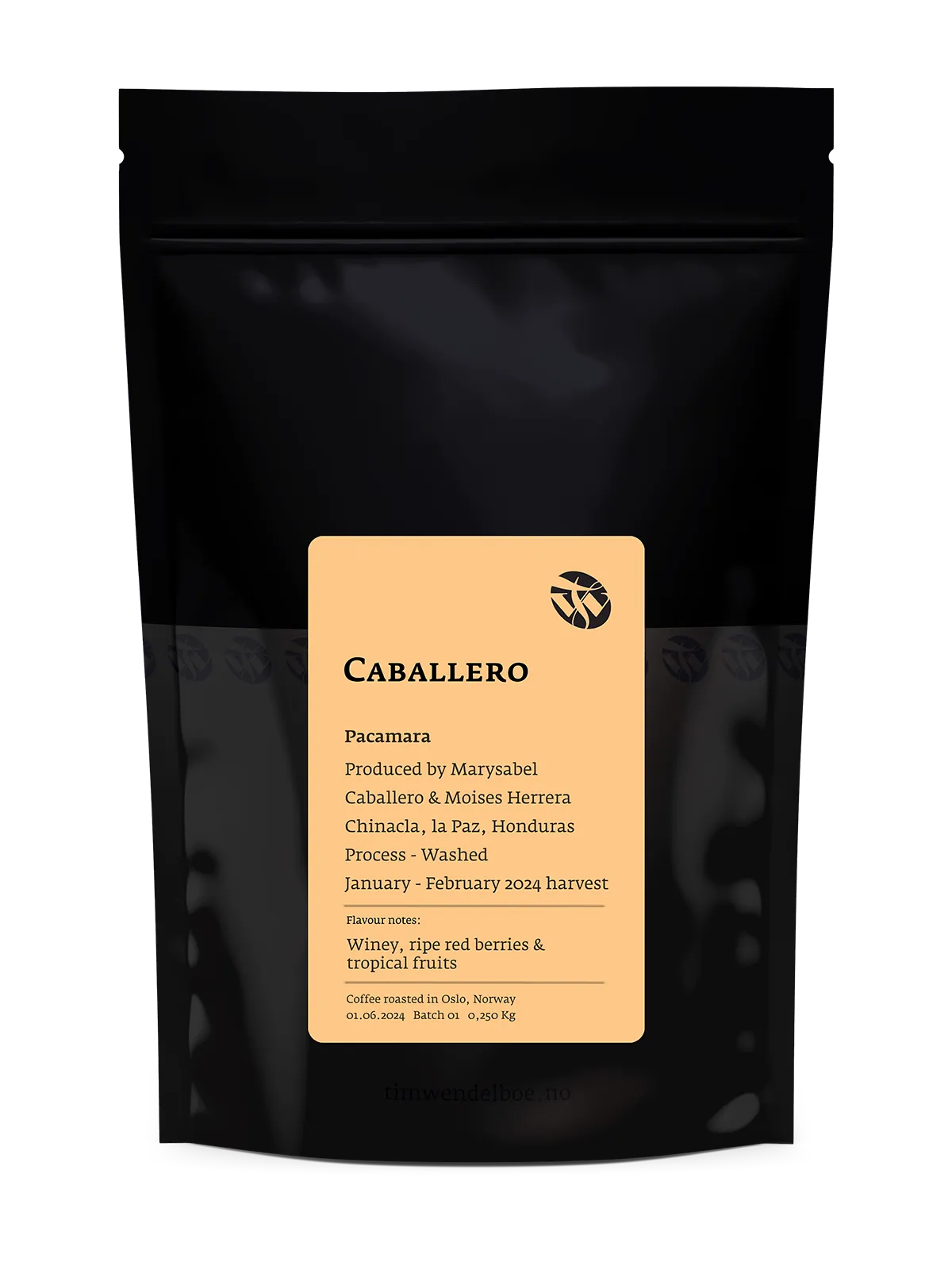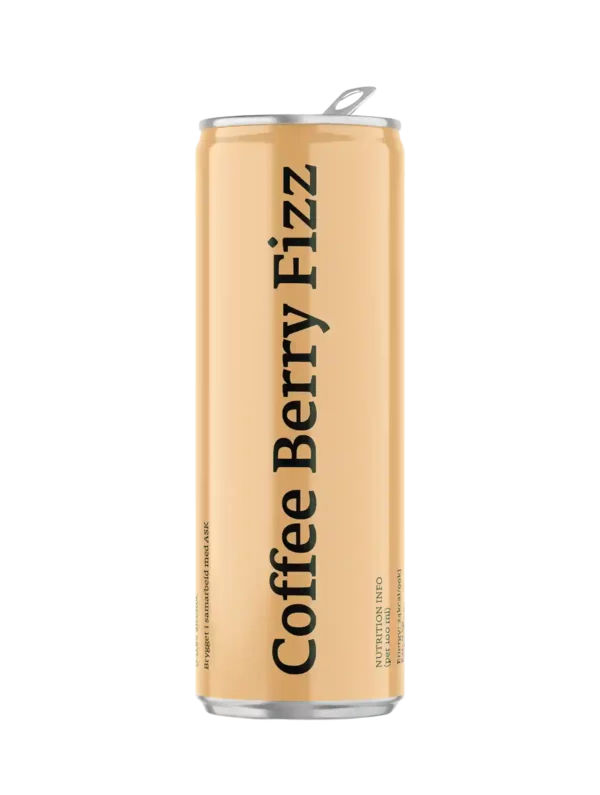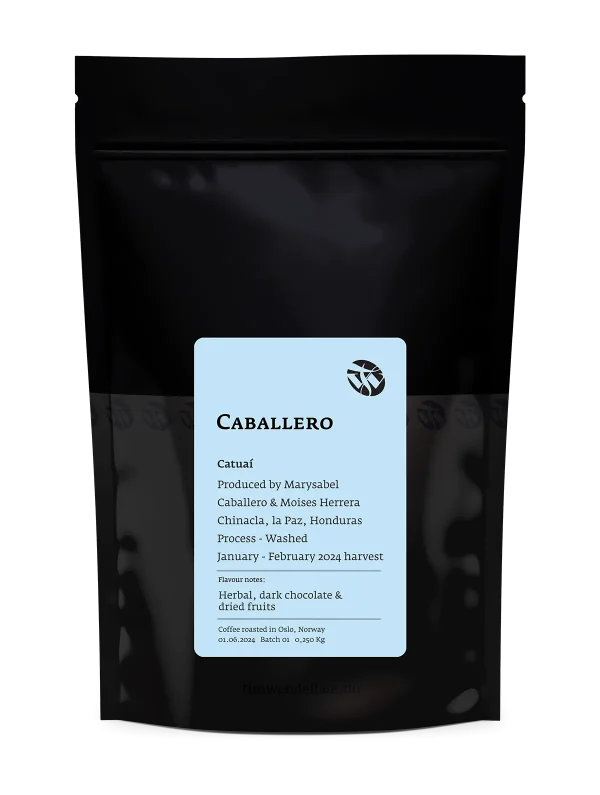| Cultivar | Pacamara |
|---|---|
| Flavour Notes | Winey, ripe red berries & tropical fruits |
| Producer | Marysabel Caballero & Moises Herrera |
| Country | Honduras |
| Region | Chinacla, La Paz |
| Process | Washed |
| Harvest | January – February 2024 |
| Roast Profile | Light Roast |
| Bag Size | 250g |
| Contents | Whole Coffee Beans |
Caballero Pacamara
kr215.00
An intense and sweet Pacamara coffee with distinct winey flavours of red and tropical fruits.
Out of stock
Additional information
Tim's Notes
In 2018 we won the Pacamara category in the Nordic Roaster Competition with the Pacamara coffee from the Caballeros and it helped us win the overall competition. I believe it was because of the exceptional sweetness that this coffee displays along with the interesting Pacamara flavours that helped us win. Unfortunately this cultivar can be a bit inconsistent both in quality and production yield from year to year , but for the last two years this coffee has been exceptional.
This lot is a blend of 3 different pickings that I selected during my visit to the Caballero farms in March. These lots really stood out with intense and distinct red and tropical fruit flavours and winey acidity. No wonder it is Marysabel's favourite cultivar as the flavours can be really complex, yet Moises is not the biggest fan, mainly due to the inconsistent mood of the plants from year to year. We only have 12 x 30kg batches of this coffee so quantities are limited.
This lot is a blend of 3 different pickings that I selected during my visit to the Caballero farms in March. These lots really stood out with intense and distinct red and tropical fruit flavours and winey acidity. No wonder it is Marysabel's favourite cultivar as the flavours can be really complex, yet Moises is not the biggest fan, mainly due to the inconsistent mood of the plants from year to year. We only have 12 x 30kg batches of this coffee so quantities are limited.
Cultivar
Pacamara is a crossing between Pacas and Maragogipe that can have very interesting cup profiles. It was released to farmers around El Salvador a bit early before it was a stable cultivar. It means you will get different outcomes when you plant the seeds from existing plants which means you can find really great tasting ones and some that are not so tasty. Fortunately Moises and Marysabel have been able to select a very tasty Pacamara.
Process
Picking and sorting
- Ripe cherries are hand picked by local pickers. The pickers are paid extra to sort ripe cherries from the unripe while they are picking. Sorting is done by simply putting the cherries in separate bags.
- The coffee cherries are de-pulped in the afternoon and the mucilage is partially removed from the parchment coffee with the use of a mechanical mucilage remover. Then the parchment coffee is fermented over night before the remaining mucilage is washed off with clean water in a washing channel which helps sorting floaters and undeveloped beans from the denser and more developed coffee. After washing the excess water is removed from the parchment coffee with the help of a centrifuge. Then the coffee is ready for drying.
- The coffees we buy from Marysabel and Moises are all dried slowly on raised beds covered with shade nets. These beds are set up by their house in Marcala where the climate is drier than at the wet mill which is located higher up in the mountains. During drying the coffees are raked throughout the day to ensure even drying. At night it gets covered to prevent condensation and the risk of the coffee gaining moisture in the drying process. Once the coffees are dried, they are stored in air tight grain pro bags before the they get milled and packed in vacuum packs and shipped to Norway.
Shipping
- For details on our current shipping information, please visit our FAQ page here.
- If you still have any questions, please contact us here.
How To Brew
Filter
- We strongly recommend using the correct measurements and brewing techniques when you brew our coffees. Use a digital scale both to measure water and coffee in order to get consistent results, and we recommend using between 60 to 70 grams of coffee per litre (1000g) of water, depending on the brewing method, water quality and coffee used.
- We strongly recommend using VST filter baskets. Both the 18g, 20g and the 22g basket is great for our coffee. The VST filters makes it a lot easier to extract the espresso properly which gives a lot more sweetness in the cup. They are also more or less identical to each other which makes it easy to be more consistent when brewing on several groups at the same time. You can buy the filters on our webshop, just make sure they fit your machine (ours fits all La Marzocco machines and machines with 58mm filter baskets). With the VST 18g filter basket, we recommend the following brewing parameters: 18-19g freshly-ground coffee, 25-35s brewing time, 35-38g of final brew liquid in the cup, 93°C-94°C brew water temperature.
The Caballeros
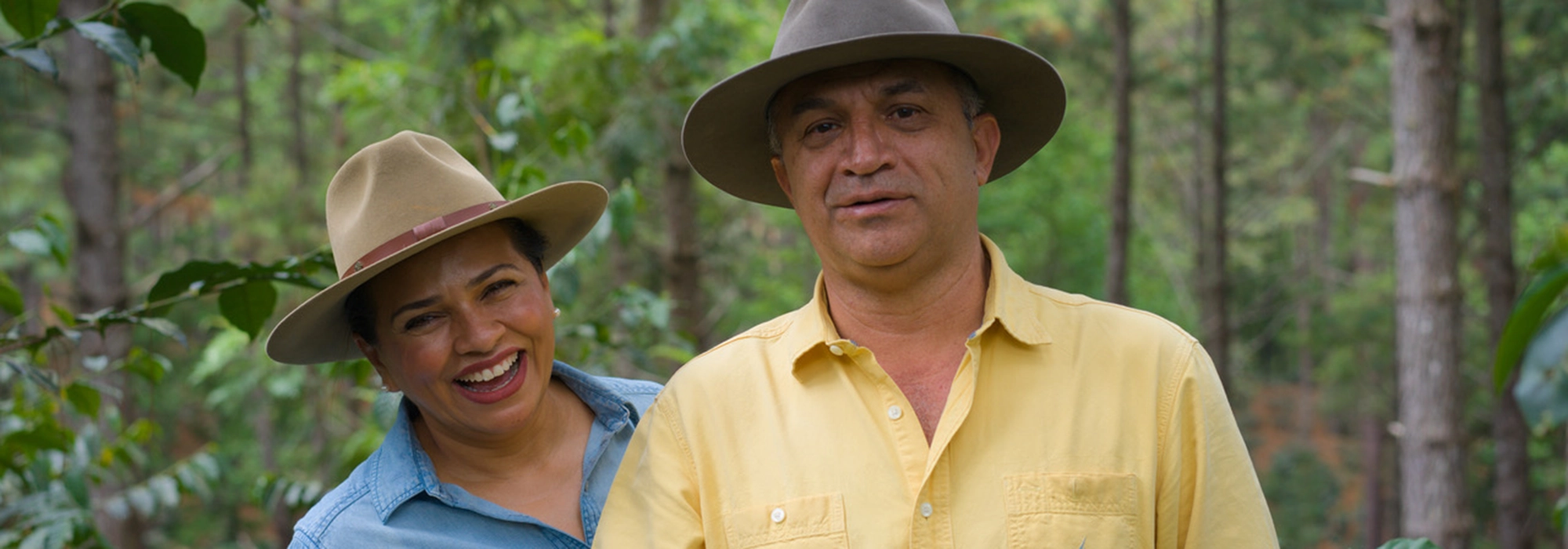
Marysabel Caballero is 3rd generation coffee farmer and together with her husband Moises Herrera they now own over 150 hectares of land planted with coffee near the town Marcala, Honduras. Marysabel’s father don Fabio Caballero is by many regarded as one of the pioneers among high quality coffee producers in Honduras. Together the family run a big wet mill where all of their coffees are processed and dried. Both Fabio, Moises and Marysabel have consistently been producing some of the best coffees Honduras has to offer. For over a decade they have been winning many top places in the Honduras Cup of Excellence. In 2016 and 2018 they managed to win 1st place with their Geisha coffees, but their first recognition was in the first Cup of Excellence competition in Honduras in 2004 when they won 2nd to 5th place with their Catuaí coffees.
Learn More About The Caballeros
Transparency
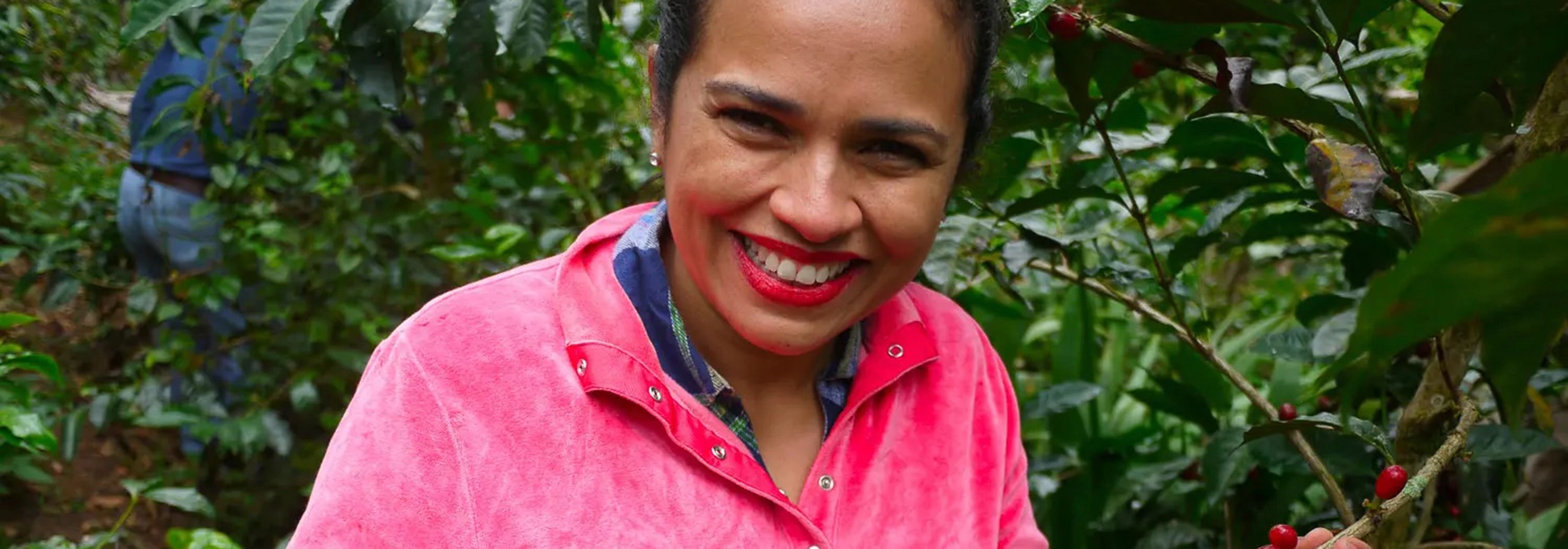
We buy coffee directly from Marysabel Caballero and Moises Herrera, the farmers. They mill and pack their own coffee. Boncafe, the exporter, provides logistical service and the coffee is imported by ourselves directly to Norway. We have been buying coffee from the Caballeros every year since 2009 and we will continue to do so in future years.
Learn More About Transparency

